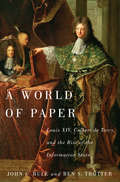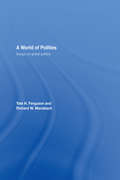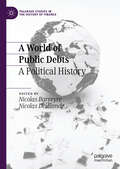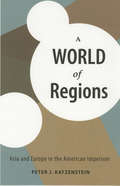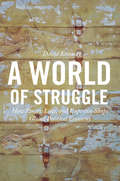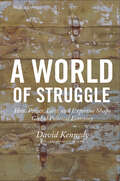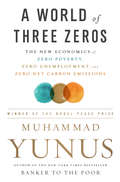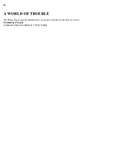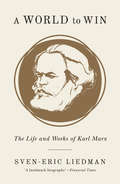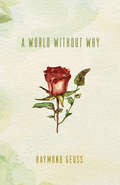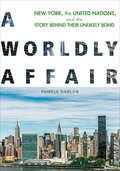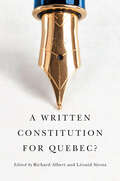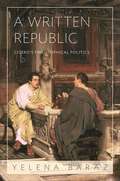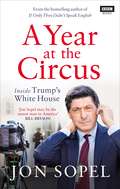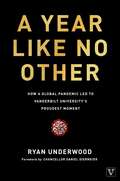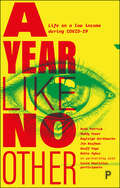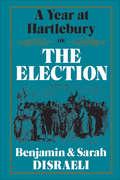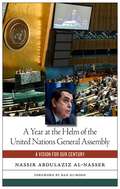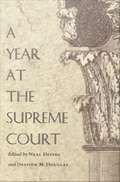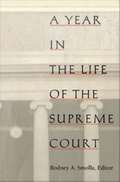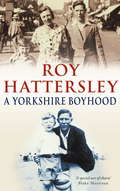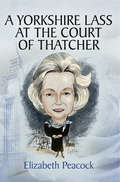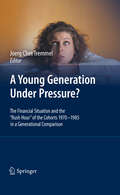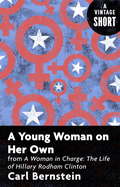- Table View
- List View
A World of Paper: Louis XIV, Colbert de Torcy, and the Rise of the Information State
by John C. Rule Ben S. TrotterHistorians and social scientists have long identified bureaucracy as the modern state's foundation and the reign of France's Louis XIV as a model for its development. A World of Paper offers a fresh interpretation of bureaucracy through a close examination of the department of the Sun King's last foreign secretary, Jean-Baptiste Colbert de Torcy. Torcy, who served as foreign secretary from 1696-1715, is widely regarded as one of the most brilliant foreign ministers of the ancien regime. Building on the work of his predecessors, he fashioned a skilled team of collaborators as he managed the complex issues of war and peace during the turbulent final decades of Louis XIV's reign. John Rule and Ben Trotter examine Torcy's department to depict administrative structures as they emerged through the circulating stream of paper that connected his office with provincial administrators and diplomats abroad. They explore the collection and centralization of information during Torcy's tenure through the creation of a modern state archive, discreet intelligence gathering, and the surveillance and management of the French mails. They also study the postal carriers, couriers, household officers of the royal court, genealogists hired for research, and an informal "brain trust" of experts, and advisors who carried vital information in and out of the department every day. A remarkable reconstruction of the department of Jean-Baptiste Colbert de Torcy, A World of Paper demystifies bureaucracy and explores the ways in which the modern information state developed from his labours.
A World of Polities: Essays on Global Politics
by Richard W. Mansbach Yale H. FergusonYale H. Ferguson and Richard W. Mansbach have made a significant contribution to our contemporary understanding of global politics. This collection contains some of their classic essays and many unpublished articles which have been edited into a coherent and stimulating collection. Subjects covered include: Theory and method in global politics The role of values and the postmodern challenge The complex roles of actors in global politics 9/11 and its aftermath The changing nature of war US unilateralism, hegemony and empire.
A World of Public Debts: A Political History (Palgrave Studies in the History of Finance)
by Nicolas Barreyre Nicolas DelalandeThis book analyzes public debt from a political, historical, and global perspective. It demonstrates that public debt has been a defining feature in the construction of modern states, a main driver in the history of capitalism, and a potent geopolitical force. From revolutionary crisis to empire and the rise and fall of a post-war world order, the problem of debt has never been the sole purview of closed economic circles. This book offers a key to understanding the centrality of public debt today by revealing that political problems of public debt have and will continue to need a political response. Today’s tendency to consider public debt as a source of fragility or economic inefficiency misses the fact that, since the eighteenth century, public debts and capital markets have on many occasions been used by states to enforce their sovereignty and build their institutions, especially in times of war. It is nonetheless striking to observe that certain solutions that were used in the past to smooth out public debt crises (inflation, default, cancellation, or capital controls) were left out of the political framing of the recent crisis, therefore revealing how the balance of power between bondholders, taxpayers, pensioners, and wage-earners has evolved over the past 40 years. Today, as the Covid-19 pandemic opens up a dramatic new crisis, reconnecting the history of capitalism and that of democracy seems one of the most urgent intellectual and political tasks of our time. This global political history of public debt is a contribution to this debate and will be of interest to financial, economic, and political historians and researchers. Chapters 13 and 19 are available open access under a Creative Commons Attribution 4.0 International License via link.springer.com.
A World of Regions: Asia and Europe in the American Imperium
by Peter J. KatzensteinObserving the dramatic shift in world politics since the end of the Cold War, Peter J. Katzenstein argues that regions have become critical to contemporary world politics. This view is in stark contrast to those who focus on the purportedly stubborn persistence of the nation-state or the inevitable march of globalization. In detailed studies of technology and foreign investment, domestic and international security, and cultural diplomacy and popular culture, Katzenstein examines the changing regional dynamics of Europe and Asia, which are linked to the United States through Germany and Japan. Regions, Katzenstein contends, are interacting closely with an American imperium that combines territorial and non-territorial powers. Katzenstein argues that globalization and internationalization create open or porous regions. Regions may provide solutions to the contradictions between states and markets, security and insecurity, nationalism and cosmopolitanism. Embedded in the American imperium, regions are now central to world politics.
A World of Struggle
by David KennedyA World of Struggle reveals the role of expert knowledge in our political and economic life. As politicians, citizens, and experts engage one another on a technocratic terrain of irresolvable argument and uncertain knowledge, a world of astonishing inequality and injustice is born.In this provocative book, David Kennedy draws on his experience working with international lawyers, human rights advocates, policy professionals, economic development specialists, military lawyers, and humanitarian strategists to provide a unique insider's perspective on the complexities of global governance. He describes the conflicts, unexamined assumptions, and assertions of power and entitlement that lie at the center of expert rule. Kennedy explores the history of intellectual innovation by which experts developed a sophisticated legal vocabulary for global management strangely detached from its distributive consequences. At the center of expert rule is struggle: myriad everyday disputes in which expertise drifts free of its moorings in analytic rigor and observable fact. He proposes tools to model and contest expert work and concludes with an in-depth examination of modern law in warfare as an example of sophisticated expertise in action.Charting a major new direction in global governance at a moment when the international order is ready for change, this critically important book explains how we can harness expert knowledge to remake an unjust world.
A World of Struggle: How Power, Law, and Expertise Shape Global Political Economy
by David KennedyHow today's unjust global order is shaped by uncertain expert knowledge—and how to fix itA World of Struggle reveals the role of expert knowledge in our political and economic life. As politicians, citizens, and experts engage one another on a technocratic terrain of irresolvable argument and uncertain knowledge, a world of astonishing inequality and injustice is born.In this provocative book, David Kennedy draws on his experience working with international lawyers, human rights advocates, policy professionals, economic development specialists, military lawyers, and humanitarian strategists to provide a unique insider's perspective on the complexities of global governance. He describes the conflicts, unexamined assumptions, and assertions of power and entitlement that lie at the center of expert rule. Kennedy explores the history of intellectual innovation by which experts developed a sophisticated legal vocabulary for global management strangely detached from its distributive consequences. At the center of expert rule is struggle: myriad everyday disputes in which expertise drifts free of its moorings in analytic rigor and observable fact. He proposes tools to model and contest expert work and concludes with an in-depth examination of modern law in warfare as an example of sophisticated expertise in action.Charting a major new direction in global governance at a moment when the international order is ready for change, this critically important book explains how we can harness expert knowledge to remake an unjust world.
A World of Three Zeros: The New Economics Of Zero Poverty, Zero Unemployment, And Zero Carbon Emissions
by Muhammad YunusA winner of the Nobel Peace Prize and bestselling author of Banker to the Poor offers his vision of an emerging new economic system that can save humankind and the planet Muhammad Yunus, who created microcredit, invented social business, and earned a Nobel Peace Prize for his work in alleviating poverty, is one of today's most trenchant social critics. Now he declares it's time to admit that the capitalist engine is broken--that in its current form it inevitably leads to rampant inequality, massive unemployment, and environmental destruction. We need a new economic system that unleashes altruism as a creative force just as powerful as self-interest. Is this a pipe dream? Not at all. In the last decade, thousands of people and organizations have already embraced Yunus's vision of a new form of capitalism, launching innovative social businesses designed to serve human needs rather than accumulate wealth. They are bringing solar energy to millions of homes in Bangladesh; turning thousands of unemployed young people into entrepreneurs through equity investments; financing female-owned businesses in cities across the United States; bringing mobility, shelter, and other services to the rural poor in France; and creating a global support network to help young entrepreneurs launch their start-ups. In A World of Three Zeros, Yunus describes the new civilization emerging from the economic experiments his work has helped to inspire. He explains how global companies like McCain, Renault, Essilor, and Danone got involved with this new economic model through their own social action groups, describes the ingenious new financial tools now funding social businesses, and sketches the legal and regulatory changes needed to jumpstart the next wave of socially driven innovations. And he invites young people, business and political leaders, and ordinary citizens to join the movement and help create the better world we all dream of.
A World of Trouble: The White House and the Middle East —From the Cold War to the War on Terror
by Patrick TylerThe Middle East is the beginning and the end of U.S. foreign policy: events there influence our alliances, make or break presidencies, govern the price of oil, and draw us into war. But it was not always so - and as Patrick Tyler shows in this thrilling chronicle of American misadventures in the region, the story of American presidents' dealings there is one of mixed motives, skulduggery, deceit, and outright foolishness, as well as of policymaking and diplomacy. <p><p>Tyler draws on newly opened presidential archives to dramatize the approach to the Middle East across U.S. presidencies, from Dwight D. Eisenhower to George W. Bush. He takes us into the Oval Office and shows how our leaders made momentous decisions; at the same time, the sweep of this narrative - from the Suez crisis to the Iran hostage crisis to George W. Bush's catastrophe in Iraq - lets us see the big picture as never before. <p><p>Tyler tells a story of presidents being drawn into the affairs of the region against their will, being kept in the dark by local potentates, being led astray by grasping subordinates, and making decisions about the internal affairs of countries they hardly understand.
A World to Win: The Life and Thought of Karl Marx
by Sven-Eric Liedman Jeffrey N. SkinnerEpic new biography of Karl Marx for the 200th anniversary of his birthIn this essential new biography—the first to give equal weight to both the work and life of Karl Marx—Sven-Eric Liedman expertly navigates the imposing, complex personality of his subject through the turbulent passages of global history. A World to Win follows Marx through childhood and student days, a difficult and sometimes tragic family life, his far-sighted journalism, and his enduring friendship and intellectual partnership with Friedrich Engels.Building on the work of previous biographers, Liedman employs a commanding knowledge of the nineteenth century to create a definitive portrait of Marx and his vast contribution to the way the world understands itself. He shines a light on Marx’s influences, explains his political and intellectual interventions, and builds on the legacy of his thought. Liedman shows how Marx’s masterpiece, Capital, illuminates the essential logic of a system that drives dizzying wealth, grinding poverty, and awesome technological innovation to this day.Compulsively readable and meticulously researched, A World to Win demonstrates that, two centuries after Marx’s birth, his work remains the bedrock for any true understanding of our political and economic condition.
A World without Why
by Raymond GeussWhy the human and natural world is not as intelligible to us as we think it isWishful thinking is a deeply ingrained human trait that has had a long-term distorting effect on ethical thinking. Many influential ethical views depend on the optimistic assumption that, despite appearances to the contrary, the human and natural world in which we live could, eventually, be made to make sense to us. In A World without Why, Raymond Geuss challenges this assumption.The essays in this collection—several of which are published here for the first time—explore the genesis and historical development of this optimistic configuration in ethical thought and the ways in which it has shown itself to be unfounded and misguided. Discussions of Greco-Roman antiquity and of the philosophies of Socrates, Plato, Hegel, Marx, Nietzsche, and Adorno play a central role in many of these essays. Geuss also ranges over such topics as the concepts of intelligibility, authority, democracy, and criticism; the role of lying in politics; architecture; the place of theology in ethics; tragedy and comedy; and the struggle between realism and our search for meaning.Characterized by Geuss's wide-ranging interests in literature, philosophy, and history, and by his political commitment and trenchant style, A World without Why raises fundamental questions about the viability not just of specific ethical concepts and theses, but of our most basic assumptions about what ethics could and must be.
A Worldly Affair: New York, the United Nations, and the Story Behind Their Unlikely Bond
by Pamela HanlonFor more than seven decades, New York City and the United Nations have shared the island of Manhattan, living and working together in a bond that has been likened to a long marriage—both tempestuous and supportive, quarrelsome and committed. A Worldly Affair tells the story of this hot and cold romance, from the 1940s when Mayor Fiorello La Guardia was doggedly determined to bring the new world body to New York, to the UN’s flat rejection of the city’s offer, then its abrupt change of course in the face of a Rockefeller gift, and on to some tense, troubling decades that followed. Racial prejudice and anti-Communist passions challenged the young international institution. Spies, scofflaw diplomats, provocative foreign visitors, and controversial UN-member policy positions tested New Yorkers’ patience. And all the while, the UN’s growth—from its original 51 member states to 193 by 2017—placed demands on the surrounding metropolis for everything from more office space, to more security, to better housing and schools for the international community’s children. As the city worked to accommodate the world body’s needs—often in the face of competition from other locales vying to host at least parts of the UN entity—New Yorkers at times grew to resent its encroachment on their neighborhoods, and at times even its very presence. It was a constituent sentiment that provoked more than one New York mayor to be less than hospitable in dealing with the city’s international guests. Yet, as the UN moves into its eighth decade in New York—with its headquarters complex freshly renovated and the city proudly proclaiming that the organization adds nearly $4 billion to the New York economy each year—it seems clear the decades-old marriage will last. Whatever the inevitable spats and clashes along the way, the worldly affair is here to stay.
A Written Constitution for Quebec? (Democracy, Diversity, and Citizen Engagement Series)
by Richard Albert and Léonid SirotaNo province in Canada has codified a written constitution, and whether Quebec should be the first remains a controversial question. A Written Constitution for Quebec? enters into the debate, drawing a roadmap through the legal, political, and constitutional terrain of the issue. Leading scholars each take their own position in the debate, examining the issue from various sides and exploring the forms and limits of a codified Quebec constitution by asking whether Quebec should adopt a written constitution, how the province might go about it, and what such a document might achieve. Along with a comprehensive introduction to constitutional codification and how it relates to Quebec, the book opens with a proposal for a written constitution, with the analyses that follow expressing a diversity of views on the feasibility and desirability of a written constitution for the province. An array of perspectives through the lenses of Indigenous inclusion and reconciliation, interculturalism and democratic constitutionalism, and insights from other federal and plurinational states – are included in this wide-ranging volume. Taking a doctrinal, historical, theoretical, and comparative approach, A Written Constitution for Quebec? extensively addresses Quebec’s constitutional future in Canada.
A Written Republic: Cicero's Philosophical Politics
by Yelena BarazIn the 40s BCE, during his forced retirement from politics under Caesar's dictatorship, Cicero turned to philosophy, producing a massive and important body of work. As he was acutely aware, this was an unusual undertaking for a Roman statesman because Romans were often hostile to philosophy, perceiving it as foreign and incompatible with fulfilling one's duty as a citizen. How, then, are we to understand Cicero's decision to pursue philosophy in the context of the political, intellectual, and cultural life of the late Roman republic? In A Written Republic, Yelena Baraz takes up this question and makes the case that philosophy for Cicero was not a retreat from politics but a continuation of politics by other means, an alternative way of living a political life and serving the state under newly restricted conditions. Baraz examines the rhetorical battle that Cicero stages in his philosophical prefaces--a battle between the forces that would oppose or support his project. He presents his philosophy as intimately connected to the new political circumstances and his exclusion from politics. His goal--to benefit the state by providing new moral resources for the Roman elite--was traditional, even if his method of translating Greek philosophical knowledge into Latin and combining Greek sources with Roman heritage was unorthodox. A Written Republic provides a new perspective on Cicero's conception of his philosophical project while also adding to the broader picture of late-Roman political, intellectual, and cultural life.
A Year At The Circus: Inside Trump's White House
by Jon SopelWelcome to the White House.At the heart of Washington, there is a circus. It's raucous, noisy and full of clowns. Reporting on it is a daily cacophony. Four major stories can blow up and blow out before breakfast, and political weather systems are moving at warp speed. The one thing absent from the weather forecast is the tranquil eye of the storm. That we never see. In A Year at the Circus: Inside Trump's White House, BBC North America Editor, Jon Sopel, takes you inside Trump’s West Wing and explores the impact this presidency has had on the most iconic of American institutions. Each chapter starts inside a famous Washington room, uncovering its history and its new resonance in the Trump era. You are invited to step inside the Oval Office where Trump called for loyalty from FBI Director James Comey, and experience life as a reporter in the Briefing Room, where the tense relationship between the media and the President is played out. Guiding you through these rooms, Jon reveals the inner workings of the Trump White House and details the key moments and conversations that have unfolded within its walls.From Kim Jong-un and Kavanaugh to Merkel and the Mueller Inquiry - this is your insider guide to the Washington Circus. Roll up, roll up ...
A Year Like No Other: How a Global Pandemic Led to Vanderbilt University's Proudest Moment
by Ryan UnderwoodThe University that was at the heart of the research to discover the vaccines for the pandemic pens the story of how it all happened.In 2020, as COVID-19 threw the U.S. higher education system into turmoil, university administrators around the country debated whether it was prudent—or even possible—to teach students in person or conduct laboratory research amid a once-in-a-century pandemic. For the leadership at Vanderbilt University, the answer to the question was a resounding Yes. Viewing residential education and collaborative research as essential to its academic and societal mission, Vanderbilt was one of a small number of America&’s top universities to put rigorous safety protocols in place to allow students, faculty, and research personnel back to campus in the fall. Told with recollections and insights from Vanderbilt&’s leaders, students, faculty, and staff, and moving at a pace matching the events it describes, A Year Like No Other takes readers from Vanderbilt&’s near-shutdown in the spring through its reopening for the 2020–2021 academic year, providing an inside look at how the university coped not only with COVID-19, but also with a tragic night of tornadoes and the urgent calls for racial justice following the killing of George Floyd. A Year Like No Other also highlights some of the vital contributions that faculty at Vanderbilt and Vanderbilt University Medical Center have made to the development of COVID-19 vaccines and therapies, with research fueled in part by Dolly Parton, the beloved country music legend. A Year Like No Other captures a singular moment in the university&’s history while delivering a concise portrait of successful crisis management playing out amid the fast-changing circumstances of global health threats and a barrage of local hardships.
A Year Like No Other: Life on a Low Income during COVID-19
by Ruth Patrick Kayleigh Garthwaite Geoff Page Maddy Power Jim Kaufman Katie PybusMoney was already tight for UK families living on a low income before the COVID-19 pandemic, but national lockdowns made life much harder. Telling the stories of these families, this book exposes the ways that pre-existing inequalities, insecurities and hardships were amplified during the pandemic for families who were already in poverty before COVID-19, as well as those pushed into poverty by the economic fallout it created. Drawing on the Covid Realities research programme, and developed in partnership with parents and carers, it explores experiences of home-schooling, social security receipt and government, community and charitable support. This book sets out all that is wrong with the status quo, while also offering a powerful agenda for change. Also see ‘COVID-19 Collaborations: Researching Poverty and Low-Income Family Life during the Pandemic’ (Open Access) to find out more about the challenges of carrying out research during COVID-19.
A Year at Hartlebury, Or, The Election
by Benjamin Disraeli Sarah DisraeliThe revelation that a long forgotten novel first published anonymously in 1834 is the work of Benjamin Disraeli and his sister Sarah is an exciting literary event. Newly discovered letters between brother and sister prove without doubt that it was written jointly by them. We do not have to look far for the reason for their secrecy. The vividly described election which forms the centrepiece of the story is clearly based on Disraeli's recent experiences as an unsuccessful candidate in two elections at High Wycombe. His political career had a long way to go and the last thing he wanted was to jeopardize it by revealing his motives in the past or his hopes for the future. The hero, Aubrey Bohun, has, like Disraeli, recently returned from mysterious travels in the East, but unlike him has his own castle and an income of £30,000 a year. Bohun obviously contains an element of wish fulfilment and allows the authors to incorporate in the novel elements of wish fulfilment and allows the authors to incorporate in the novel elements of a popular genre known in its day as 'silver fork' fiction – revelations of high life. Although there is much of this and of melodrama too, there is also some splendid social irony. Michael Foot says 'the volume is quite fit to takes its place in the true Disraeli canon and contains many gems which add fresh gleams to the portrait of Disraeli himself.' Two appendixes explain the literary detection that proved the book's authorship and the parallels between the politics of Aubrey Bohun and Disraeli.
A Year at the Helm of the United Nations General Assembly: A Vision for our Century
by Nassir Abdulaziz Al-NasserFrom September 2011 to September 2012,Ambassador Nasser Abdulaziz Al-Nasser of Qatar presided over the 66th sessionof the “world’s parliament” – the United Nations General Assembly. It was acritical moment in international affairs as the UN responded to a range ofglobal challenges, from the world financial crisis to the Arab Spring. In AYear at the Helm of the General Assembly, Al-Nasser presents a high-levellook inside the organization, assessing its strengths and weaknesses, itssuccesses and struggles. He recounts dramatic moments, such as replacing theLibyan delegation, and a tireless schedule of overseas travel, including jointvisits with the Secretary-General to Libya and Somalia. His work takes him frommajor international summits such as the Conference on Sustainable Developmentin Rio de Janeiro, Brazil (Rio+20) to the European Parliament, which he was thefirst General Assembly President to address, to academic institutions fromOxford to Moscow to Morocco.Al-Nasserstructures the book as he did his 66th session, around four mainthemes or “pillars:” mediation, UN reform, natural disaster prevention andresponse, and sustainable development.He offers a wide range of recommendations to intergovernmentalinstitutions, to states, to the public sector, and to individuals. Al-Nasser was determined to leave behinda General Assembly that the people of the world could look up to and depend on.This volume is a testament to all that he accomplished in that regard, and aunique resource for those interested in knowing more about the world’s mostrepresentative body at a crucial moment in history.
A Year at the Supreme Court
by Neal Devins Davison M. DouglasThe United States Supreme Court's 2002-03 term confounded Court watchers. The same Rehnquist Court that many had seen as solidly conservative and unduly activist--the Court that helped decide the 2000 presidential election and struck down thirty-one federal statutes since 1995--issued a set of surprising, watershed rulings. In a term filled with important and unpredictable decisions, it upheld affirmative action, invalidated a same-sex sodomy statute, and reversed a death sentence due to ineffective assistance of counsel. With essays focused on individual Justices, Court practices, and some of last year's most important rulings, this volume explores the meaning and significance of the Court's 2002-03 term. Seasoned Supreme Court advocates and journalists from The New Republic, The Los Angeles Times, Newsweek, National Journal, Slate, and Legal Times grapple with questions about the Rehnquist Court's identity and the Supreme Court's role in the political life of the country. Some essays consider the role of "swing" Justices Sandra Day O'Connor and Anthony Kennedy within a Court that divides 5-4 more than any other group of Justices in the nation's history. Others examine the political reaction to and legal context of the Court's Lawrence v. Texas decision declaring a Texas law criminalizing homosexual sodomy unconstitutional. Contributors analyze the Court's rulings on affirmative action and reassess its commitment to states' rights. Considering the Court's practices, one advocate explores the use and utility of amicus curiae, or "friend of the court" briefs, while another reflects on indications of an increased openness by the Court to public scrutiny. Two advocates who argued cases before the Court--one related to hate speech and the other to a "three strikes and you're out" criminal statute--offer vivid accounts of their experiences. Intended for general readers, A Year at the Supreme Court is for all those who want to understand the Rehnquist Court and its momentous 2002-03 term. Contributors Erwin Chemerinsky Neal Devins Davison M. Douglas David J. Garrow Dahlia Lithwick Tony Mauro Carter Phillips Ramesh Ponnuru Jeffrey Rosen David G. Savage Rodney A. Smolla Stuart Taylor Jr.
A Year in the Life of the Supreme Court
by Stephen Wermiel Paul Barrett Richard Carelli Marcia Coyle Lyle Denniston Aaron Epstein Kay Kindred Tony Mauro David SavageDespite its importance to the life of the nation and all its citizens, the Supreme Court remains a mystery to most Americans, its workings widely felt but rarely seen firsthand. In this book, journalists who cover the Court--acting as the eyes and ears of not just the American people, but the Constitution itself--give us a rare close look into its proceedings, the people behind them, and the complex, often fascinating ways in which justice is ultimately served. Their narratives form an intimate account of a year in the life of the Supreme Court. The cases heard by the Surpreme Court are, first and foremost, disputes involving real people with actual stories. The accidents and twists of circumstance that have brought these people to the last resort of litigation can make for compelling drama. The contributors to this volume bring these dramatic stories to life, using them as a backdrop for the larger issues of law and social policy that constitute the Court's business: abortion, separation of church and state, freedom of speech, the right of privacy, crime, violence, discrimination, and the death penalty. In the course of these narratives, the authors describe the personalities and jurisprudential leanings of the various Justices, explaining how the interplay of these characters and theories about the Constitution interact to influence the Court's decisions. Highly readable and richly informative, this book offers an unusually clear and comprehensive portrait of one of the most influential institutions in modern American life.
A Yorkshire Boyhood
by Roy HattersleyIt was not until he was dead and I was forty that I realised my father was once in Holy Orders,' Roy Hattersley tells us in the opening pages of A YORKSHIRE BOYHOOD; so setting the tone for an elegant, continually surprising book.A somewhat precocious only child, Roy grew up surrounded by protective, ever-anxious adults, equally determined to expose him to books and to shield him from germs -- second-hand books were decontaminated by a sharp session in the oven. Uncle Ernest, a timber merchant's clerk celebrated for his skill at 'fretwork and the manipulation of Indian clubs'; a ten-year feud with the next-door neighbours; unwavering devotion to Sheffield Wednesday - all the pleasures and pangs of northern working-class childhood are magnificently evoked as Roy Hattersley takes us through the hardships of the Thirties and the Blitz; and into the 1940s, the 11-plus examination and Grammar School.Completely updated, A YORKSHIRE BOYHOOD is an autobiographical essay of unusual wit, eloquence and candour.
A Yorkshire Boyhood
by Roy HattersleyIt was not until he was dead and I was forty that I realised my father was once in Holy Orders,' Roy Hattersley tells us in the opening pages of A YORKSHIRE BOYHOOD; so setting the tone for an elegant, continually surprising book.A somewhat precocious only child, Roy grew up surrounded by protective, ever-anxious adults, equally determined to expose him to books and to shield him from germs -- second-hand books were decontaminated by a sharp session in the oven. Uncle Ernest, a timber merchant's clerk celebrated for his skill at 'fretwork and the manipulation of Indian clubs'; a ten-year feud with the next-door neighbours; unwavering devotion to Sheffield Wednesday - all the pleasures and pangs of northern working-class childhood are magnificently evoked as Roy Hattersley takes us through the hardships of the Thirties and the Blitz; and into the 1940s, the 11-plus examination and Grammar School.Completely updated, A YORKSHIRE BOYHOOD is an autobiographical essay of unusual wit, eloquence and candour.
A Yorkshire Lass at the Court of Thatcher
by Elizabeth PeacockElizabeth Peacock served as MP for Batley and Spen for 14 years and was one of the most outspoken politicians during her time at Westminster.Famed for her 'no nonsense, just common sense' approach, Elizabeth won many admirers along with a reputation for being difficult. Not afraid to vote against her own party, the Conservatives, Elizabeth genuinely said and did what she thought was right for all Britain, but especially her local constituents.At the time she became an MP, she was one of very few women to do so but quickly made her mark in a very male dominated environment. She was the first woman MP to take part in the Lords v Commons charity motor race at Brands Hatch in which she more than held her own. Elizabeth was heavily involved in the Miners Strike of the 80's and was one of the few to vote against her own government as well as meeting regularly with Arthur Scargill, an unthinkable thing to do for a Conservative MP. She would go on to vote against the Major government too, never to be difficult, but just because she thought their actions weren't in the best interest of the nation. Her outspoken views on the IRA would lead to an unsuccessful but extremely frightening attack on her car whilst parked outside her home.In this candid, honest and often very funny autobiography, Elizabeth reveals what it was like to work at Westminster during those turbulent years. She offers frank assessments of the men and women she worked with including Margaret Thatcher, John Major and many others.A completely absorbing and insightful read.
A Young Generation Under Pressure?: The Financial Situation and the "Rush Hour" of the Cohorts 1970 - 1985 in a Generational Comparison
by Joerg TremmelJustice between generations is still not as prominent on any agenda as justice between rich and poor or men and women. For the first time, this three-part book explores the situation of young people of today in comparison to their direct predecessors. The first part, The Financial Situation of the Young Generation in a Generational Comparison, deals with this generation's financial standing; the second part, The Rush Hour of Life, examines their time restrictions. Both are considered from a life-course perspective. The third part, On the Path to Gerontocracy?, addresses the demographic shift in favor of the elderly in aging Western democracies.
A Young Woman on Her Own: from A Woman in Charge
by Carl BernsteinA Vintage Shorts Selection From the definitive, humanizing biography of one of the most powerful and widely misunderstood women of our time: Hillary Rodham Clinton. Pulitzer Prize-winning reporter Carl Bernstein sheds light on Hillary's political development during her four years as an impressionable but fierce undergraduate at Wellesley. In thick, Coke-bottle glasses, here is an ambitious young student--galvanized by the assassination of Martin Luther King and the women's liberation movement--fighting to be recognized by the East coast elite. Bernstein reveals a side of Hillary not often seen in a tender, heartening, and measured depiction of her even-keeled transformation from a Barry Goldwater conservative raised in a staunchly anti-communist household in Illinois into an "agnostic intellectual liberal" and an impassioned progressive dedicated to peaceful and pragmatic reform. An ebook short.
